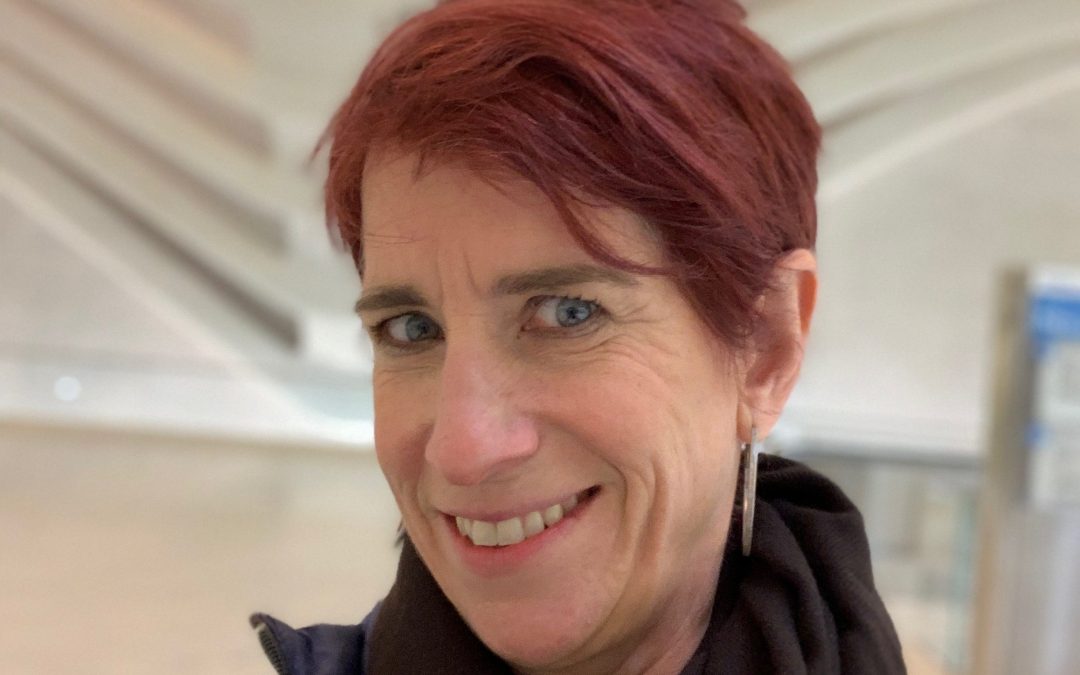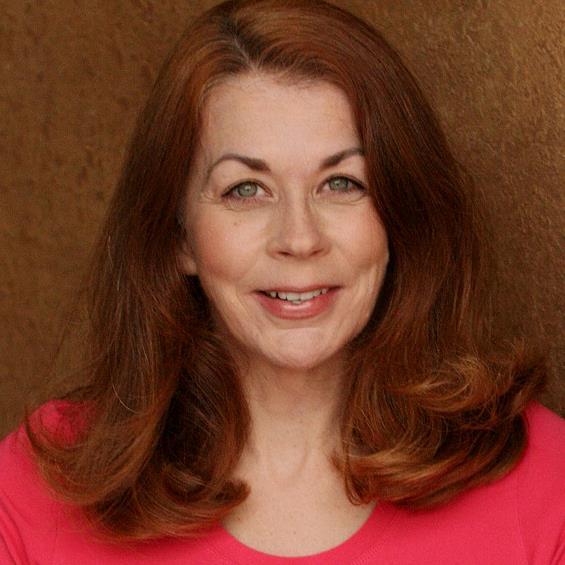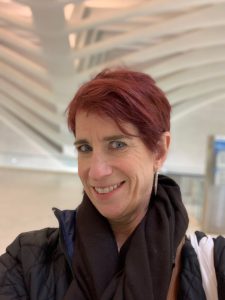 Over the last two decades, BookEnds Literary Agency founder and president Jessica Faust and her team have ushered a small army of talented authors to the bestsellers list. In addition to being a super agent, Faust is an accomplished writer herself, as well as a highly sought-after speaker at conferences and other publishing events. Her blog on the publishing industry is a must-read for anyone who wants to know what is really going on in the industry, and she can also frequently be found on the BookEends YouTube Channel. Even with a schedule like that, she made time recently to chat with me about her work and the state of the industry.
Over the last two decades, BookEnds Literary Agency founder and president Jessica Faust and her team have ushered a small army of talented authors to the bestsellers list. In addition to being a super agent, Faust is an accomplished writer herself, as well as a highly sought-after speaker at conferences and other publishing events. Her blog on the publishing industry is a must-read for anyone who wants to know what is really going on in the industry, and she can also frequently be found on the BookEends YouTube Channel. Even with a schedule like that, she made time recently to chat with me about her work and the state of the industry.
OM: Let’s start with some basics. I think writers conceptually know that agents are really busy, but perhaps don’t appreciate just how busy you can be. To that end, how many queries do you get in an average week?
Faust: I receive about 400 queries a week and of those I request probably 1%, so maybe 4 submissions a week. But queries are not what keep me busy. In fact, reading queries is often something I do when I’m traveling to meetings, when I have a quiet moment or am procrastinating from a bigger project. They are the last thing on my to-do list if they even make it.
An agent’s job is to represent our clients and to do so we have to wear many hats. We are salespeople, negotiators, therapists, editors, managers, consultants, and planners. What keeps us busy is managing our clients’ careers. In the past week I have read two partial manuscripts and their synopses and sent revisions for both to clients (sometimes multiple rounds), I’ve written pitches for two different books, reviewed royalty statements, reached out to editors regarding an author’s schedule, reviewed marketing plans, held meetings with editors, pitched books for audio, book, film and foreign rights, negotiated a contract, reviewed another contract, and, yes, read queries and submissions.
The reason the query wait time can be so long is because it’s usually the last thing we get to in any given day or week. As hungry as we might be for new clients and books, our current clients take priority.
OM: The BookEnds website is one of the most informative I’ve ever seen. So many agencies provide prospective authors with just the bare minimum of information. What was your motivation for having such an expansive site?
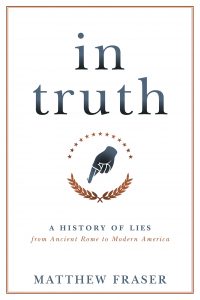 Faust: Thank you. We are incredibly proud of our site. The blog took shape nearly 10 years ago when I wanted to cut back on my conference schedule, but somehow still inform and empower authors with an insider’s look at publishing. At the time I was traveling to close to 10 conferences a year. I was exhausted, but also disillusioned by some of the information I heard others in the industry give. Some of it was incorrect, some of it I disagreed with and some of it was just plain condescending. I’ve always felt honored to be a part of this industry and an author’s team and I want all writers to be empowered to take control of their own careers.
Faust: Thank you. We are incredibly proud of our site. The blog took shape nearly 10 years ago when I wanted to cut back on my conference schedule, but somehow still inform and empower authors with an insider’s look at publishing. At the time I was traveling to close to 10 conferences a year. I was exhausted, but also disillusioned by some of the information I heard others in the industry give. Some of it was incorrect, some of it I disagreed with and some of it was just plain condescending. I’ve always felt honored to be a part of this industry and an author’s team and I want all writers to be empowered to take control of their own careers.
Through a blog (still relatively new in the world at that time) I realized I could reach far more people while limiting my travel. It was an ideal situation for me and for authors who might not have been able to get to conferences.
As the agency shifted and changed over the years, adding BookEnds, Jr, a new logo and a new website, we decided to merge the blog and website into one. We wanted to do more than use our website as a way to show authors what we’ve done. We wanted to show them who we are and give them the advice and guidance we give our own authors as a way to empower themselves.
OM: You attend a lot of conferences. Some agents I’ve spoken to have become a little cynical about these events. Do you still get a lot of clients this way?
Faust: Any agent will tell you that we don’t go to conferences expecting to find clients and in over 20 years of publishing this has never been the case. For agents, conferences are about networking with other publishing professionals, connecting with authors, getting our name into the author network, and giving back to the writing community.
I suspect the cynicism you sense from agents comes mostly from the frustration that so many conferences feel very one-sided. While yes, agents don’t pay to attend, it’s also rare we get paid to attend. In fact, in most cases attending a conference costs an agent both time and money and is a long weekend of work. In addition, there’s a feeling that the emphasis on pitch events at conferences takes advantage of an author’s desire to be published, especially since so few pitch events result in an agent contract.
I still enjoy attending the occasional conference. I find the energy inspiring and often return to the office jazzed up to find new clients. But I have limited my schedule greatly for many of the reasons I mention above. For authors looking for an agent the best way to do this is still through good old-fashioned querying. This is where 90 percent of BookEnds clients have come.
OM: What is the biggest misconception most writers have about agents?
Faust: That we don’t value writers or their work and that we aren’t looking for anything new (I’ll have to credit James McGowan for helping me with this answer). Agents are readers first and avid readers. When looking through submissions and seeking authors to add to our list we are looking for books we fall in love with and want to share with others Like most readers we have certain genres and subjects we gravitate towards and others that don’t hold our interest or, in some cases, we just don’t understand.
Beyond that, agents are businesspeople which means when taking on a client and a book we can’t just consider something because we love it. We also need to consider the market, in the same way editors, publishers, and bookstore buyers need to consider the market when making their decisions. This doesn’t mean we don’t want to see something new. In fact, we very much want to see something new, but also something akin to what already sells and what readers are looking for. We don’t want another BEARTOWN. That book has been done and done well. What we do want is another book that will appeal to fans of BEARTOWN.
As for valuing writers and their work. I do understand how discouraging the querying process can be and how writers can be made to feel that way. I think you’ll find instead that agents have the utmost respect for what authors do. Without them we wouldn’t have careers. More importantly though, without them we wouldn’t have books.
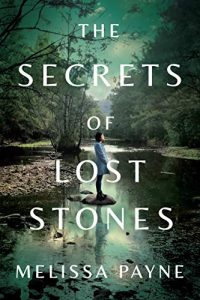
OM: Social media is both a blessing and a curse to many authors. Many writers don’t like the social media atmosphere – especially Twitter – but feel like they have to have a presence there to raise or maintain their profile. Do you see social media as a mandatory thing for a writer?
Faust: I don’t, but some publishers do. And most readers will want you to. Social media has become a way of life and like it or not, it’s here to stay and one of the easiest and best ways for authors to reach their readers. While I don’t think you need to be on every platform, I do recommend you find one or two that you like and have fun with.
I’ve actually found a space for myself that I enjoy on Twitter and Instagram, but my social media presence has changed quite a bit over the years and continues to change. Once upon a time, I was all about Facebook. Now I’m not there at all, preferring to put my attentions toward Twitter and Instagram, although I can see myself slowly backing away from Twitter. In addition, the blog, which used to have daily posts, is slowly giving way to our YouTube channel.
Things change in the world of social media, but to ignore it completely is definitely a mistake.
OM: You’ve been vocal about the publishing industry needing to be more diverse, both with people and with the books it produces. In that regard, what more should the industry be doing to make this happen? How much of this is on agents like yourself and how much is on the publishing houses?
Faust: It’s on all of us and the first steps are to hire more diverse candidates to make the decisions about the books we are publishing. For those of us who are white, I strongly believe that education is imperative. We have to be made aware of our biases and racist tendencies. BookEnds went through a diversity training series last year to do just that. Are we perfect? Nope, the one thing we learned is how not perfect we are, but we are trying to be more aware of the biases we have, the words we use, and the books we read and represent. Most importantly, we have made it our mission to fill our lists with all voices.
OM: What are some of the biggest mistakes you see in the submissions you receive? Is it mostly writers querying before their work is actually ready for that process? Or something else?
Faust: Honestly, most of the submissions and queries I receive don’t have mistakes. They are written by perfectly competent authors who have done their homework and know exactly what is required of them. Most of the requested material and queries I pass on have little to do with mistakes and everything to do with a book that just doesn’t grab my attention, that doesn’t feel quite different enough or the voice doesn’t resonate with me. The writing might be good and perfectly competent, but not necessarily outstanding or good enough. And, of course, it has to be the perfect mix of everything—great writing, a compelling plot, intriguing characters, and a voice that resonates with me.
OM: Every agent has favorite genres. What are yours?
Faust: I’ve never been good with favorites. My preferences change as the market changes and as I change. Right now, I’m leaning toward upmarket and literary fiction, suspense, thrillers, and women’s fiction. I also read a lot of leadership books, personal development, psychology and self-help. To give a better idea some of my most recent favorite reads, or those I’d long to have on my list are: BEARTOWN, MY SISTER, THE SERIAL KILLER, START WITH WHY, THE PASSENGERS, CATCH AND KILL, EVERYTHING IS FIGUREOUTABLE, LONG BRIGHT RIVER, and THE WHISPER MAN.
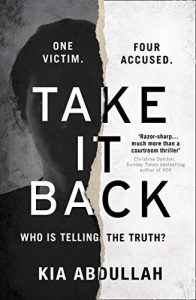 OM: Many writers now work with a professional editor before submission. Does it matter to you when a writer says in their pitch that their manuscript has been professionally edited?
OM: Many writers now work with a professional editor before submission. Does it matter to you when a writer says in their pitch that their manuscript has been professionally edited?
Faust: It doesn’t. I want a great book and if it takes a professional editor to get you there that’s fine, but I think for most it’s not necessary.
OM: The prevailing theory for years was that a writer needed to have a New York City agent to really get anywhere with their career. Does it still matter that an agent is in NYC?
Faust: I’m close enough to NYC (NJ) to feel I’m a NYC agent, but I don’t think it matters. Some of the best agents I know are far outside of NY but have just as many contacts, connections, and sales as those in the city.
OM: The industry has changed so much over the last 15-20 years. Are things better now for writers or worse?
Faust: Different. I’m not a better or worse person. I think in some ways both. Certainly, the availability and ease in which authors can gain knowledge about publishing is huge. 15-20 years ago there was really no Internet and the only way to learn about publishing was through books (often dated) or conferences (always expensive). Now thanks to blogs, Twitter, YouTube, and email you can learn everything easily and free. People say the market is harder and readers don’t buy books, but I’ve been hearing that for 20 years and I expect I’ll hear it for another 20. So I guess, if you made me choose, I think the availability of information and self-publishing make the world a better place for authors.
OM: What major evolutions in the industry can you see happening in the next 5-10 years?
Faust: Well I certainly hope we’ll see both a more diverse workplace in publishing as well as more diverse bookshelves. And, as tech evolves there is no doubt so will publishing. I suspect the explosion of audio will continue as well the enhancement of books in ebook form. What exactly that will be is hard for me to say.
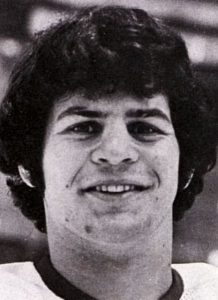 OM: I like to end with what I hope is a fun question. Let’s say I could put you together for a conversation with just one of the following three people. Which one would you choose, and why? Your options are: 1980 Team USA Olympic team captain Mike Eruzione, legendary singer/songwriter Bob Dylan, or equally legendary singer/actress Marlene Dietrich.
OM: I like to end with what I hope is a fun question. Let’s say I could put you together for a conversation with just one of the following three people. Which one would you choose, and why? Your options are: 1980 Team USA Olympic team captain Mike Eruzione, legendary singer/songwriter Bob Dylan, or equally legendary singer/actress Marlene Dietrich.
Faust: This is totally unfair. You’re asking a hockey loving girl from MN to choose between Mike Eruzione and Bob Dylan. If forced to choose I think I’d pick Mike. He seems like more fun.

